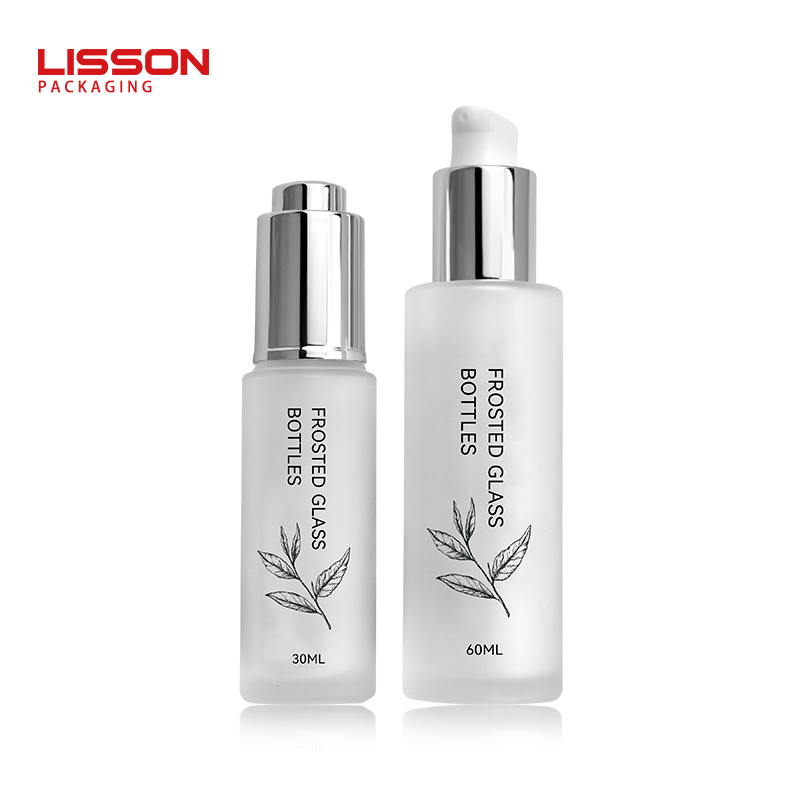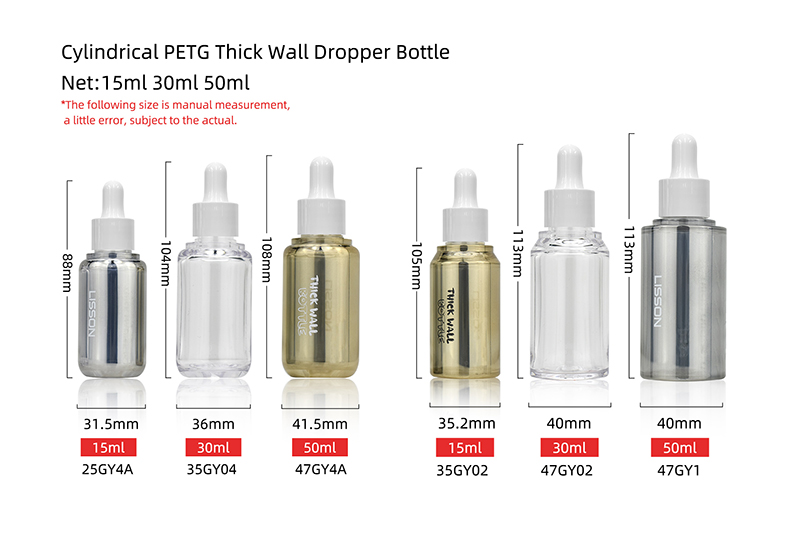A dropper bottle is a type of container that features a built-in dropper cap, allowing for controlled dispensing of liquids in small quantities. It is commonly used for various applications ranging from pharmaceuticals and skincare products to essential oils and food flavorings.
When it comes to the materials used in dropper bottles, there are several options available. Here are some of the commonly used materials and their characteristics:
Glass: Glass dropper bottles are popular due to their durability, chemical resistance, and ability to preserve the integrity of the contents. Glass is non-reactive, making it suitable for storing products that may be sensitive to interactions with certain plastics. It also provides better protection against UV light.

Plastic (such as PET or PETG): Plastic dropper bottles offer a lightweight and shatterproof alternative to glass. PET (polyethylene terephthalate) and PETG (PET with glycol modification) are commonly utilized as they are FDA-approved for direct contact with food and beverages. They provide good chemical resistance and are often chosen for their affordability and versatility in various applications.

HDPE (High-Density Polyethylene): HDPE dropper bottles are known for their excellent chemical resistance, making them suitable for storing a wide range of products. They are lightweight, durable, and offer good impact resistance. HDPE is commonly used for pharmaceuticals, chemicals, and personal care products.
The choice of the best material for a dropper bottle depends on various factors, including the specific product being stored, its compatibility with different materials, desired level of protection, and budget considerations. Glass bottles generally offer superior protection and a more premium feel but may be heavier and more fragile compared to plastic options.
Ultimately, the best material for a dropper bottle depends on your specific needs and the nature of the product you intend to store. Consider factors such as chemical compatibility, UV protection, durability, and cost when making your selection.